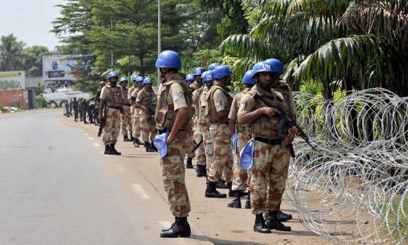By Carolyn Abdenour
Impunity Watch Reporter, Africa
HARARE, Zimbabwe – On 5 October, Amnesty International released “Left Behind: The Impact of Zimbabwe’s Mass Forced Evictions on the Right to Education.” This news report found that thousands of children and young people are unlikely to access adequate schools after the government forced them from their homes throughout major cities as a part of Operation Murambatsvina (loosely translated to “Drive Out Dirt”).

Amnesty International recommends that the Zimbabwe government ensure that the children re-housed into settlements during the forced evacuation program six years ago receive the opportunity for education.
In 2005, the government resettled people under the pretense the people lived in deplorable conditions. It created Operation Garikai (“Better Life”) to provide 700,000 with a promise of better access to services. The government destroyed schools, markets, and small businesses during the evictions.
Prime Minister Morgan Tsvangirai’s Movement for Democratic Change believes President Robert Mugabe initiated the slum clearances to dislocate growing urban opposition and to punish them for supporting his party.
Presently, the settlers do not have access to roads, public transportation, or job opportunities. They live in plastic shacks, mud houses, or poorly constructed homes on allocated land or housing built under Operation Garikai. The people struggle to feed themselves, find clean water, and meet basic sanitation needs. Michelle Kagari, Amnesty International Deputy Africa Director, reported the new settlements are worse than the slums.
Girls who could not attend school married at a young age to avoid sex work. Now, community groups are establishing unregistered schools to educate the next generation, but they lack resources such furniture, trained teachers, and support from the Ministry of Education.
Education Minister David Coltart described the report as “credible.” He asserts the government made “great strides” to remedy the education issues in these communities.
Ms. Kargari commented, “If there is no serious investment by the government, these people will be condemned to a life of poverty and suffering.” Mr. Coltart stated he desires to stabilize the education sector, and he recognizes the government “still [has] a lot of work to do.”
Between Zimbabwe’s independence in 1980 and the country’s collapse in 2000 from hyperinflation and political conflict, it had one of the best education systems in Africa.
Ms. Kargari concluded, “The government’s removal of people from places where they had access to education, and its subsequent failure to provide education has struck a devastating blow to the lives and dreams of thousands of children.”
For further information, please see:
Independent Online – Education Eludes Zimbabwe’s Homeless Children – 6 Oct 2011
Amnesty International, UK – Zimbabwe: Forced Evictions Leave Thousands of Children Without Access to Education – New Report – 5 Oct 2011
BBC – Zimbabwe Children ‘Condemned to Life Without Education’ – 5 Oct 2011
San Francisco Chronicle – Group: Zimbabwe Forced Evictions Stranded Children – 5 Oct 2011



